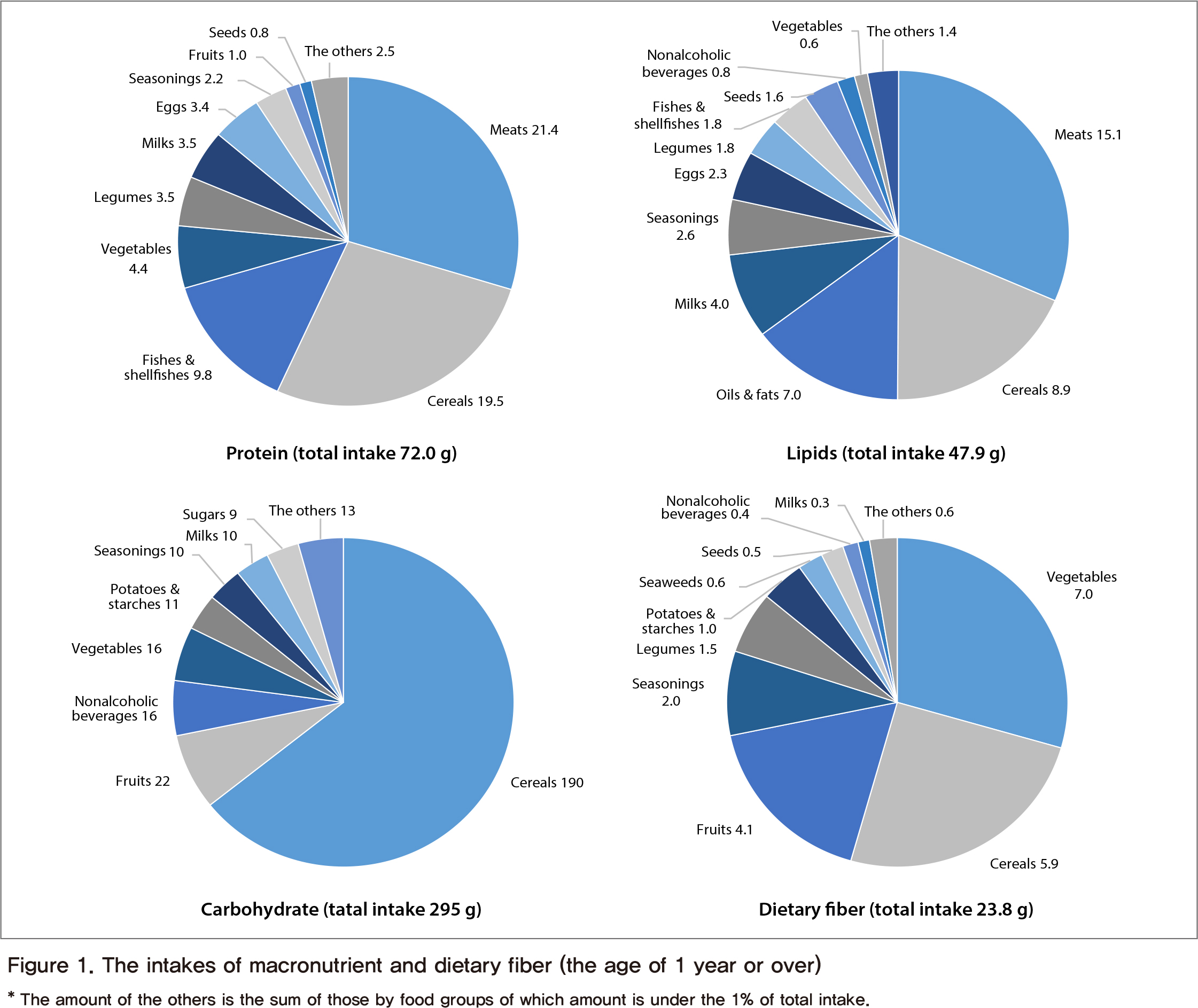contents area
Public Health Weekly Report
detail content area
- Date2019-08-08 21:54
- Update2019-11-19 18:48
- DivisionDivision of Strategic Planning for Emerging Infectious Diseases
- Tel043-719-7271
Abstract
Food sources of nutrient intake in Korea National Health and Nutrition Examination Survey
Kweon Sanghui, Oh Kyungwon
Division of Health and Nutrition Survey, Center for Disease Prevention, KCDC
The purpose of this work was to show the major food sources of nutrient intakes in the Korea National Health and Nutrition Examination Survey (KNHANES), which could be used for improving dietary behavior. Using KNHANES microdata at the year of 2017, the intakes of energy and nutrients by 18 food groups, such as cereals, vegetables, meats, etc, were calculated. Although the intake of cereals (288.5 g) was the highest in food groups, which followed by those of vegetables and nonalcoholic beverages, the highly ranked food groups of energy intakes were cereals (911.3 kcal), meats, and alcoholic beverages. The major food sources of proteins and lipids were cereals and meats, while the top ranked food groups of calcium were vegetables. The intake of iron was highly affected by cereals, vegetables, and meats, which of vitamin A was vegetables, milks, and seasonings. The vitamin C was consumed from vegetables and fruits, and riboflavin from cereals, meats, and vegetables. The major source of carbohydrate intake was cereals with the level of about two-thirds, and the half of sodium intake was from seasonings. The intake of dietary fiber was affected by plant food groups, such as vegetables, cereals, fruits, etc. The beverage of alcoholic or nonalcoholic were major food groups for energy intake, however not for other essential nutrients. The major food sources of nutrients could be used for not only solving problems of nutrient deficiency and excess intake but also qualitative enhancement such as bioavailability.
Keywords: Nutrient intake, Nutrition survey, Balanced nutrition, Korea National Health and Nutrition Examination Survey



 This public work may be used under the terms of the public interest source + commercial use prohibition + nonrepudiation conditions
This public work may be used under the terms of the public interest source + commercial use prohibition + nonrepudiation conditions